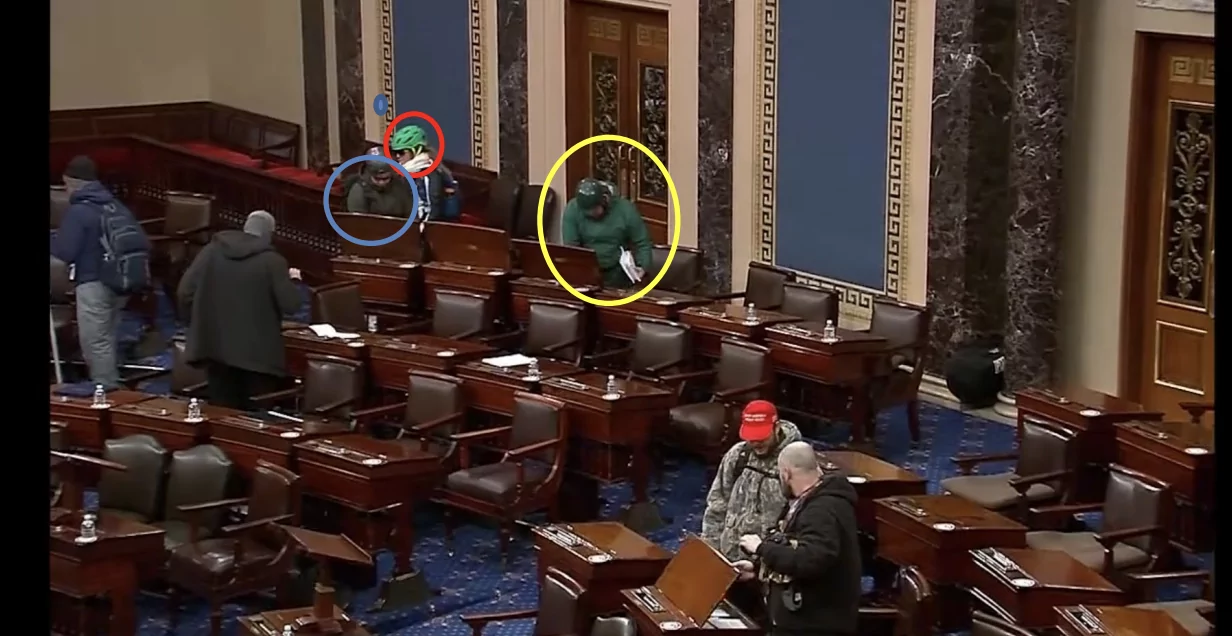
The Department of Justice is showing signs of how it might attempt to overcome the fresh set of challenges it is facing in the wake of a recent Supreme Court decision that favored dozens of Jan. 6 defendants, including former President Donald Trump.
Over the past week, the DOJ began asking judges in Washington, D.C., for one or two months of extra time to weigh the impact of Fischer v. United States on some of its cases related to the 2021 breach.
In one case, Judge Dabney Friedrich ordered DOJ prosecutors and defense attorneys to make recommendations for “further proceedings” and a new sentencing date “in light of Fischer” for defendant Ronald Sandlin.
On Friday, prosecutors told Friedrich they needed 30 extra days to come up with their response, according to a court filing.
Sandlin pleaded guilty in 2022 to conspiring to obstruct an official proceeding, the charge at the center of Fischer. The Supreme Court narrowed the scope of the charge so that obstruction had to occur by destroying or tampering with, or attempting to destroy or tamper with, physical records.
“The government is actively assessing the impacts of Fischer on Jan. 6 cases in a variety of procedural postures,” prosecutors wrote in Sandlin’s case.
Sandlin also pleaded guilty to assaulting an officer, admitting that he shoved police while trying to enter the Senate Gallery. For his two charges, he was sentenced to more than five years behind bars and has been in prison since January 2021.
Prosecutors said their next step would be to consider whether the obstruction charge they brought against Sandlin is still appropriate under the Supreme Court’s newly narrowed view of the law.
“The government will also analyze whether it would still be able to meet its burden under the narrower interpretation of 18 U.S.C. § 1512(c)(2) articulated in Fischer, and whether Fischer alters the government’s position on the defendant’s sentence,” prosecutors wrote.
In the case of Tara Stottlemyer, DOJ prosecutors asked for 60 days to respond to the defendant, who argued days after the Fischer ruling came down that her sentence of eight months in jail and two years probation should be vacated.
Stottlemyer pleaded guilty in 2022 to one charge of obstructing an official proceeding, admitting that she illegally entered the Capitol, wandered into House Speaker Nancy Pelosi’s (D-CA) suite and the Senate Chamber, and rifled through senators’ papers.

Her attorney argued that under the Supreme Court’s new requirement for bringing obstruction charges, Stottlemyer’s guilty plea and sentence were “constitutionally infirm and must be vacated.” She has already served her jail time and is currently in the probation phase of sentencing.
Prosecutors responded that the high court “did not reject the application” of the obstruction charge “whole cloth” but that they needed until September to respond to Stottlemyer’s request “so that this process may take place efficiently and thoughtfully.”
Judge Timothy Kelly, who is presiding over that case, denied the request and gave the prosecutors until July 30 to issue their response.
Donovan Crowl was convicted of obstruction and civil disorder, and earlier this year, Judge Amit Mehta agreed to push his sentencing hearing until late July in anticipation of the Supreme Court’s decision.
On July 1, prosecutors again asked for extra time to “assess the impact” of the Fischer case on Crowl.
“The United States of America respectfully requests that the court continue Defendant Donovan Crowl’s sentencing hearing, which is currently scheduled for July 25, 2024, for a period of 30-60 days, in light of the decision issued by the Supreme Court last week in United States v. Fischer,” the prosecutors wrote.
Fischer was one of two Supreme Court decisions that dealt blows to the DOJ’s Jan. 6 prosecution efforts. In the case of Trump v. United States, the high court determined that presidents have some absolute immunity from criminal prosecution.
The decision effectively guaranteed that special counsel Jack Smith would need to reconfigure his four election interference charges against Trump. Two of the charges are also tied to the Fischer ruling, adding a layer of work for Smith as he attempts to salvage his indictment of the former president.
CLICK HERE TO READ MORE FROM THE WASHINGTON EXAMINER
Legal experts have predicted that Judge Tanya Chutkan, who is presiding over Trump’s case, will soon schedule a hearing to begin the process of stripping any presidential activity that is now deemed protected under the Supreme Court’s new guidance from the indictment.
It remains unclear how Smith will respond, but based on the high court’s framework, the special counsel has a steep uphill climb to argue Trump’s activities while he was in office are fair game to be used against him in a criminal prosecution.





